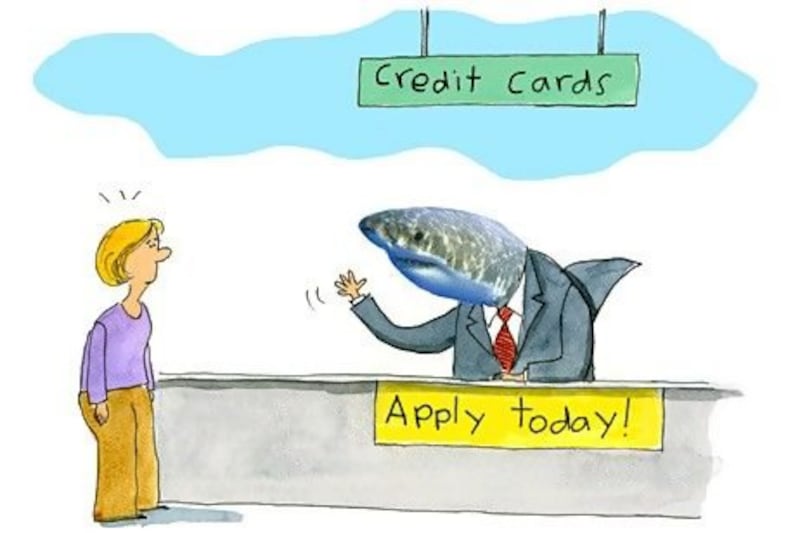Historically, credit cards have always carried high interest rates. But in the UAE, the rates we pay are apparently among the highest in the world, averaging anywhere between 27 per cent and 36 per cent a year.
We pay more interest on our cards than many of our GCC neighbours; in Qatar and Kuwait, consumers pay about 18 per cent interest per year, while Saudis are charged up to 24 per cent.
Then again, there's also a good case as to why we should consider ourselves relatively lucky. Brazilians, for instance, are slugged up to 200 per cent a year on their credit cards, according to Reuters. Let's just pause for a moment to imagine those repayments.
"Consumers pay annual rates of up to 200 per cent for normal credit-card loans - the highest borrowing costs for that segment among the world's major economies," Reuters said last July in a story about the country's central bank tightening rules on credit-card loans backed by salaries and pensions.
The interest rates we pay on our credit cards are much higher than other types of credit - such as mortgages and car loans - simply because they carry more risk. It's not like a mortgage, for instance, that has a house as collateral. If you fall behind on your mortgage payments or stop paying them altogether, the bank knows that it can take your house away and sell it to get its money back. The same applies with your car, even though it does start losing its value the moment you drive it out of the showroom.
Credit cards are a different kettle of fish. Think about what you use your credit card for - anything from electronic gadgets to holidays to those spa visits. It's not like the bank can seize your new TV if you stop making your payments. The same goes for that fancy meal you splashed out on at Emirates Palace hotel, which you paid for with your credit card. The bank certainly can't repossess your dinner, nor can it reclaim the mani-pedi you splurged on. Credit cards are seen as higher risk, hence the higher charges.
Although it must be said here that credit-card interest rates are way too high in the UAE.
But the days of high interest rates could be coming to an end if a news report on January 31 in the Arabic-language Al Khaleej newspaper is anything to go by. Quoting an unnamed senior official at the UAE Central Bank, the newspaper said the banking regulator would announce this month an 18 per cent cap on credit cards. The aim, the official told Al Khaleej, was to curb bad loans.
So far, the banks have been quiet about the Central Bank's proposal. And who would blame them. After all, those high interest rates we pay for the privilege of using their credit cards plays a huge part in their profits. In fact, these days, it would be safe to say that it is a major driver of their bottom lines.
If the proposal is confirmed, you can bet that there will be a lot of creative number crunching going on in the back rooms of the banks. Does it mean we will say goodbye to free-for-life cards and start paying annual fees on all our cards? Will the loyalty points and other benefits that now seem to be a regular part of the 21st-century credit card come to an end?
More to the point, will the 18 per cent cap only apply to new cardholders? Hold on: does that explain why my bank rushed to replace my credit cards two months ahead of their expiry dates? Perhaps they know more than they are letting on. And here I was thinking it was just being super efficient.
But here's one idea I'd like to throw into the mix. I know consumers will love it, but I'm pretty certain the banks won't be embracing it in a hurry.
Let's come up with a quid pro quo arrangement with our banks. They slug us up to 36 per cent to use their credit cards and in return they give us up to 36 per cent on our deposits. It's only fair, right? We are using their money and they are using our money.
At the moment, my bank is offering 0.10 per cent on a basic savings account. Oddly, I've just checked the rate for my HSBC Advance savings account and there's a new note on the general information page for it that says: "Interest rate of 0.25% p.a on HSBC Advance Current account stands withdrawn effective 1st of April 2011."
Does that mean I'm not getting any interest on my money anymore? That quid pro quo idea is sounding more attractive by the minute. Although I can hear the echoes of laughter from the bankers all the way from here.






